Cell Cycle & Cancer Biology Research Program
What We Do
The Cell Cycle & Cancer Biology Research Program focuses on basic biological processes that control cell growth and cell division. Researchers within this program use cutting-edge technologies in molecular biology, genetics, and advanced microscopy to investigate the factors that regulate genome stability in experimental systems such as budding yeast, Xenopus laevis, mouse, zebrafish, and cultured mammalian cells.
The contributions made by members of CCCB in illuminating the normal pathways of cell division and the malfunctions that lead to chromosome abnormalities have important implications for human diseases including birth defects and cancer.
The members of CCCB place strong emphasis on research training of students and postdoctoral fellows.
Our Scientists
Our Publications
2024
Park J, Kirkland JG. The role of the Polybromo-associated BAF complex in development. Biochem Cell Biol, 2024 November, PMID: 39541575
Bergwell M, Park J, Kirkland JG. Differential modulation of polycomb-associated histone marks by cBAF, pBAF, and gBAF complexes. Life Sci Alliance 7, 2024 August, PMID: 39209535, PMCID: PMC11361369
Mian Y, Wang L, Keikhosravi A, Guo K, Misteli T, Arda HE, Finn EH. Cell type- and transcription-independent spatial proximity between enhancers and promoters. Mol Biol Cell:mbcE24020082, 2024 May, PMID: 38717453, PMCID: PMC11244156
Evatt JM, Sadli AD, Rapacz BK, Chuong HH, Meyer RE, Ridenour JB, Donczew R, Dawson DS. Centromere pairing enables correct segregation of meiotic chromosomes. Curr Biol, 2024 April, PMID: 38670094, PMCID: PMC11111343
Rankin BD, Rankin S. The MCM2-7 Complex: Roles beyond DNA Unwinding. Biology (Basel) 13, 2024 April, PMID: 38666870, PMCID: PMC11048021
Noble TD, Sansam CG, Wittig KA, Majchrzycka B, Sansam CL. Cell Cycle-Dependent TICRR/TRESLIN and MTBP Chromatin Binding Mechanisms and Patterns. bioRxiv, 2024 February, PMID: 38370757, PMCID: PMC10871258
Carbajal A, Gryniuk I, de Castro RO, Pezza RJ. Efficient Enrichment of Synchronized Mouse Spermatocytes Suitable for Genome-Wide Analysis. Methods Mol Biol 2818:65-80, 2024 January, PMID: 39126467
de Almeida LP, Lee CY, Carbajal A, de Castro RO, Pezza RJ. Visualization and Quantification of Rapid Chromosome Movements at Early Stages of Mouse Meiosis. Methods Mol Biol 2818:171-177, 2024 January, PMID: 39126474
Chuong HH, Evatt JM, Dawson DS. Dynamic Live Cell Imaging of Budding Yeast Meiosis. Methods Mol Biol 2818:161-169, 2024 January, PMID: 39126473
2023
Schoen JR, Chen J, Rankin S. The intrinsically disordered tail of ESCO1 binds DNA in a charge-dependent manner. bioRxiv, 2023 December, PMID: 38106185, PMCID: PMC10723360
Chen J, Floyd EN, Dawson DS, Rankin S. Cornelia de Lange Syndrome mutations in SMC1A cause cohesion defects in yeast. Genetics 225, 2023 October, PMID: 37650609, PMCID: PMC10550314
Roe MM, Do T, Turner S, Jevitt AM, Chlebicz M, White K, Oomens AGP, Rankin S, Kovats S, Gappa-Fahlenkamp H. Blood myeloid cells differentiate to lung resident cells and respond to pathogen stimuli in a 3D human tissue-engineered lung model. Front Bioeng Biotechnol 11:1212230, 2023 July, PMID: 37485324, PMCID: PMC10361305
Dawson DB, Lewis V, Fletcher TL, Scofield RH. Perspective: Developing Future Veterans Affairs Scientists Through a Diversity, Equity, and Inclusion Program. Health Equity 7:342-345, 2023 May, PMID: 37284528, PMCID: PMC10240330
Meyer RE, Sartin A, Gish M, Harsha J, Wilkie E, Haworth D, LaVictoire R, Alberola I, Chuong HH, Gorbsky GJ, Dawson DS. Polyploid yeast are dependent on elevated levels of Mps1 for successful chromosome segregation. bioRxiv, 2023 January, PMID: 36712123, PMCID: PMC9882063
Jevitt AM, Rankin BD, Chen J, Rankin S. The cohesin modifier ESCO2 is stable during DNA replication. Chromosome Res 31:6, 2023 January, PMID: 36708487, PMCID: PMC9884251
Loading...
Contact Us
Gary J. Gorbsky, Ph.D.
WH and Betty Phelps Chair in Developmental Biology
Chair, Cell Cycle & Cancer Biology
Oklahoma Medical Research Foundation
825 NE 13th Street, MS 48
Oklahoma City, OK 73104
Phone: (405) 271-8168
Fax: (405) 271-7312
Email: gary-gorbsky@omrf.org
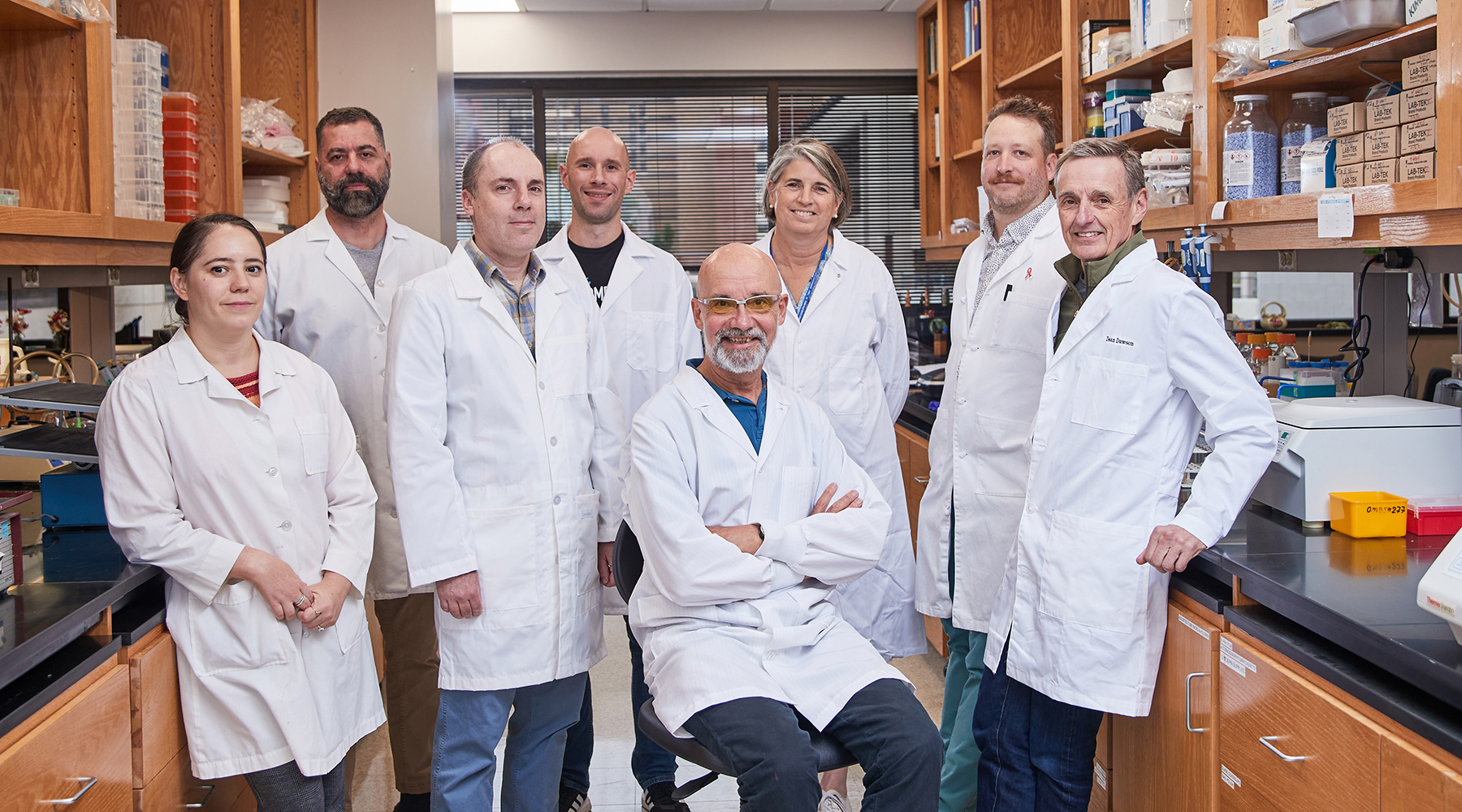
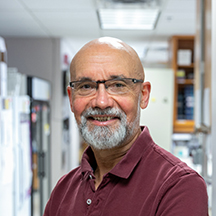 Gary J. Gorbsky, Ph.D.
Gary J. Gorbsky, Ph.D.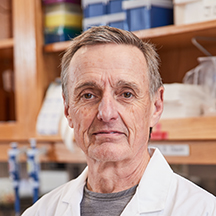 Dean Dawson, Ph.D.
Dean Dawson, Ph.D.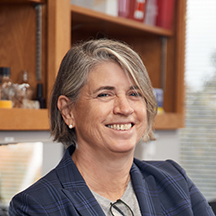 Susannah Rankin, Ph.D.
Susannah Rankin, Ph.D.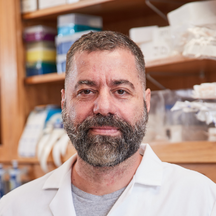 Roberto Jose Pezza, Ph.D.
Roberto Jose Pezza, Ph.D.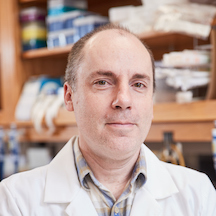 Christopher L. Sansam, Ph.D.
Christopher L. Sansam, Ph.D.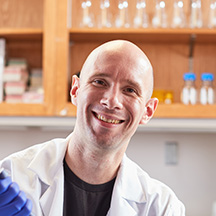 Rafal Donczew, Ph.D.
Rafal Donczew, Ph.D.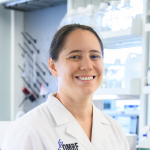 Elizabeth Finn, Ph.D.
Elizabeth Finn, Ph.D.


